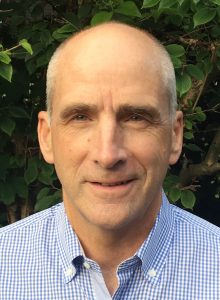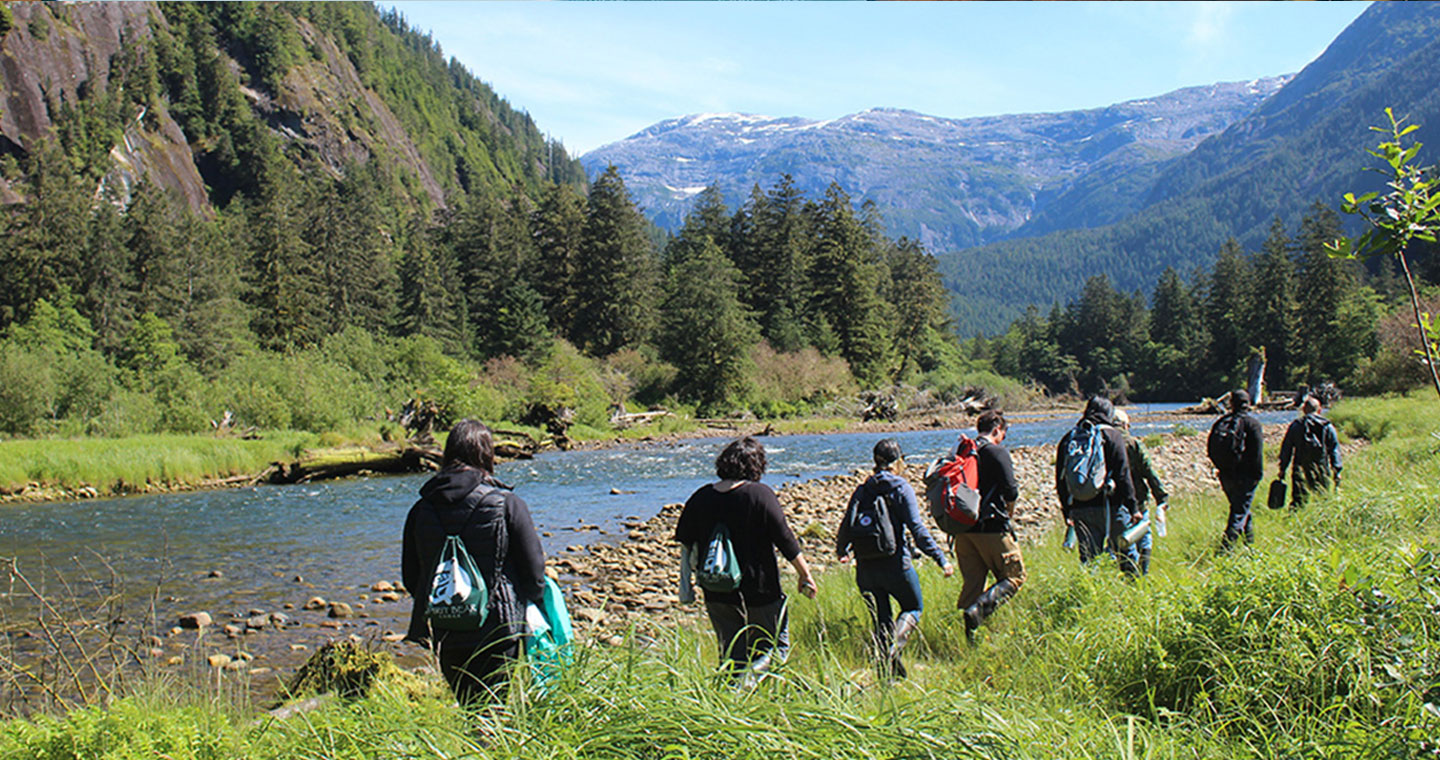
How can tourism be sustainable and empower both local communities and their economies? This is a question that has guided the professional career and philanthropy of Mike Robbins.
Based in Collingwood, Ontario, Mike has over 37 years’ experience working as a tourism consultant. His career has taken him all over Canada, New Zealand, Australia, Southeast Asia, northern Africa, and the Middle East. With a background in environmental planning and resource management, Mike knew it was vital that responsible tourism consider the triple bottom line: economic, social, and environmental.
Mike founded his own boutique management tourism consulting firm in 1994, specializing in strategic planning and marketing, feasibility assessments for new tourism ventures, and master planning for tourism resorts and attractions. He has a particular interest in tourism as a form of economic empowerment for Indigenous peoples and has worked on a wide range of assignments with First Nation, Métis, Inuit, and Maori entrepreneurs. One of his key accomplishments was helping establish the Arviat Community Ecotourism (ACE) program—considered a best practice model in community-based tourism. The program won the World Travel and Tourism Council’s Tourism for Tomorrow Community Award in 2014, which recognizes tourism that enhances community capacity.
His philanthropic interests flourished in the early 2000s after he saw the impact philanthropy had on conservation initiatives. He started the 7th Generation Fund, a donor advised fund at MakeWay, in 2003 to support Indigenous cultural and ecotourism initiatives. Mike currently volunteers as Board Chair for the Center for Responsible Travel, a policy-oriented research institution based in Washington, DC. His passion for tourism and adventure crosses over into his personal life as well, as he competes internationally in alpine ski racing. He travels every year to South America, the US, and Europe to train and race in the three disciplines of super-G, GS, and slalom.
MakeWay is honoured that Mike is an ongoing donor, fundholder, and supporter of our work. We share with you his views on the role of philanthropy in supporting conservation and economic revitalization.
Can you tell us about how your love for philanthropy developed?
In 1981 I had my first exposure to remote Indigenous communities while working as part of the team undertaking a pilot project for community-based tourism planning in Pangnirtung, Northwest Territories. I could clearly see the opportunities but also the significant barriers to sustainable economic development for the local Inuit. My interest in remote Indigenous community economic development took hold as a result of that first experience.
My passion for philanthropy developed back in the early 2000s when I personally experienced philanthropy supporting major conservation initiatives wherein a developing conservation economy was directly benefitting First Nations communities. The first occasion was back in 2003 when I travelled with my two teenage daughters to the Taku River and the traditional territory of the Taku River Tlingit First Nation. At the time the Taku River Tlingit were completing the design of conservation areas with the goal of reasserting their rights to steward their traditional territories. While learning about their efforts to buy back the sport hunting license in order to help conserve key wildlife species, we had the experience of a lifetime visiting the grizzly bear mothers and cubs at the fishing weirs on the Fishing Branch, a Taku tributary. The second instance was when I travelled on a MakeWay-hosted trip on the Island Roamer up through the Great Bear Rainforest. The Great Bear Rainforest is truly our Canadian “Galapagos,” and home to 26 First Nations.
I began to realize then how strategic, coordinated philanthropy could help empower remote Indigenous communities, and how responsible tourism—another interest of mine—could play a major role. In my professional life, I have had the privilege of working with remote Indigenous communities in Canada and New Zealand on various tourism consulting assignments since the early 1980s. I knew only too well the limitations of government support in helping these communities build tourism capacity and launch sustainable tourism ventures. At this point, I could clearly see the critical role for strategic and patient philanthropy.
Why do you think it is important to support charitable work?
I believe it is important to give back through both philanthropy and volunteer efforts when we are fortunate in life. We all experience philanthropy through the many donation or sponsorship requests we each receive through the year. We are often drawn towards certain philanthropic causes by life’s tragedies or through friends and acquaintances participating in fundraising events or in support of their personal causes. There is an opportunity to go beyond this level of philanthropy and reach for much deeper impact by being proactive (rather than reactive) with our philanthropic energy and resources.
How did you first hear about MakeWay? Why do you continue to support MakeWay?
I first heard about MakeWay from my good friend (and philanthropic mentor) Alan Broadbent, who as it happened was one of the founding directors of MakeWay. I was seeking Alan’s advice on how best to take part of my personal wealth and begin to give back in some productive and fulfilling way. At the time I was wondering if setting up a personal foundation was the best route, but with some strategic thinking and advice from Alan and others, I decided to set aside a portion of my resources, invest them prudently, and begin to spend the full sum over a set period of years. I decided to set up a donor advised fund (7th Generation Fund) at MakeWay as the vehicle through which to make annual contributions. The reasons for choosing this direction were simple:
- MakeWay could introduce me to exciting and diverse initiatives in various parts of Canada that aligned with my philanthropic goals – to help empower Indigenous communities through responsible tourism.
- MakeWay could help find other like-minded donors to leverage my funds.
- I would have no responsibility for, and no costs associated with, running my own foundation, and I could donate more of my resources over an extended period of time to worthwhile initiatives, rather than working to maintain an endowment fund.
I will continue to work with MakeWay until my funds are fully spent as the partnership with MakeWay has more than met my expectations to give back in a strategic, educational, productive, and fulfilling way.
How has MakeWay helped you connect to the communities you want to work in?
MakeWay supports Indigenous people in building healthy, vibrant communities that have the social, economic, and natural capital to steward their environments for generations to come. This support has strongly focused on the more remote parts of Canada including the North and areas of the East and West Coasts, and that is where a significant part of my professional experience with Indigenous communities has been.
What value alignment do you believe you share with MakeWay?
I have been a big supporter of the concept of ecotourism from early on in my professional career, perhaps as a result of my environmental planning educational background. Ecotourism is tourism that minimizes negative impacts on the environment, educates travellers, and maximizes benefits to local communities. MakeWay’s interest in creating conservation economies is closely aligned with the principles of ecotourism and, in fact, ecotourism is typically one of the major economic activities in the large area conservation projects that MakeWay supports and engages with.
What do you hope to accomplish as a philanthropist?
I simply hope to make a difference by giving back and to learn while doing it. My philanthropic initiatives associated with MakeWay have been some of my most fulfilling and educational endeavours.
Your work really takes into consideration the economic, social, and environmental aspects of tourism. Why do you feel it’s important to consider the triple bottom line in your work and with philanthropy?
To quote from the Center for Responsible Travel, a nonprofit I chair in Washington, DC, the “social and environmental imperative for responsible travel is growing as the global inequality crisis is reaching new extremes, and the wide range of climate change impacts are increasingly apparent.” Tourism is the largest global service industry and one of the best economic opportunities in remote Indigenous communities. Tourism can, as we see in destinations like Venice and Barcelona and parts of the Mexican coast, be very damaging if not managed in a responsible manner.
Responsible tourism can be an important tool in support of both environmental conservation and cultural preservation.
Why is it important to you to support Indigenous tourism and environmental conservation?
Indigenous people traditionally don’t see any difference or separation between themselves and the environment they live in and have lived in harmony with for thousands of years. And they often live in some of the most spectacular, sensitive, and iconic areas of this country.
What are some of the most pressing issues in Canada, now and for the future, that you think need to be addressed?
The issue that is closest to my heart is the need for reconciliation with our Inuit, First Nations, and Métis neighbours and communities. We must help empower them to fully participate in the economic and social benefits in our country, and to engage their traditional ecological knowledge and stewardship skills in protecting our environment and their traditional territories. And of course, climate change.
What words of wisdom would you share with people who are interested being philanthropic, but don’t know where to start?
Think strategically, build from your passions, and be generous in giving back.
At MakeWay, we share Mike’s vision of making things better for people and building a better Canada. You can help us tackle tough environmental, social, and economic issues by making a donation to our Uncommon Solutions Fund.
Thank you to Mike and to all of our donors and fundholders. With your support, we will continue to work hard for a healthy environment, equality, and prosperity for all Canadians.
